
“Precious in the sight of the Lord is the death of his saints.” —Psalm 116:15
The Death of Justin Martyr, June 1, 166 AD
 here is not an abundance of reliable sources concerning individual Christians in the immediate post-apostolic era (i.e. second century), but there are some. One of the best known stories, told and re-told through the ages, has been that of an educated Palestinian named Justin, who was likely born while the Apostle John was still living, and survived into his mid-60s. His writings have provided modern scholars a profound look into the early acceptance of many New Testament books and second century apologetical arguments for Christianity. here is not an abundance of reliable sources concerning individual Christians in the immediate post-apostolic era (i.e. second century), but there are some. One of the best known stories, told and re-told through the ages, has been that of an educated Palestinian named Justin, who was likely born while the Apostle John was still living, and survived into his mid-60s. His writings have provided modern scholars a profound look into the early acceptance of many New Testament books and second century apologetical arguments for Christianity.
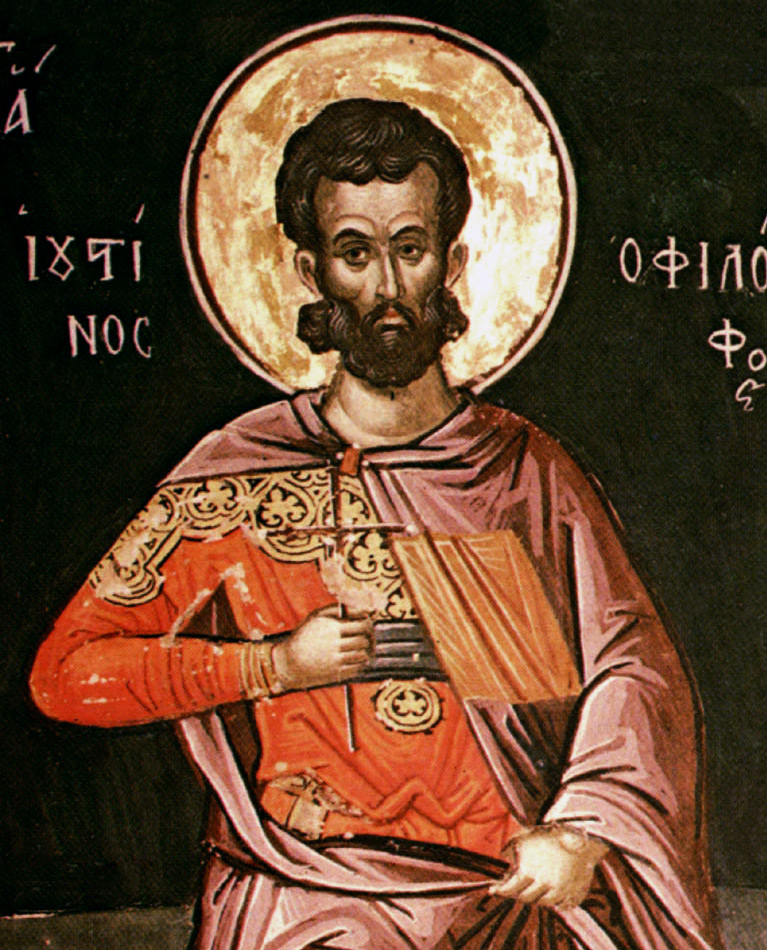
Justin Martyr (100-166 AD)

Location of Nablus (Shechem in the Bible) in relation to Jerusalem
|
Justin was born into a pagan family in Samaria, near the modern town of Nablus. His grandfather had a Greek name and his father, a Latin one. Justin must have received an excellent education, for he read all the ancient philosophers and was conversant in many of their theories and ideas. In his Dialogue, Justin describes his dissatisfaction with the philosophies he studied, none of which answered his quest for meaning and knowing who God is. He rejected the Stoics and Pythagoreans and settled on Plato, saying he thought he had finally become wise, but “such was my stupidity, that I expected forthwith to look upon God.”
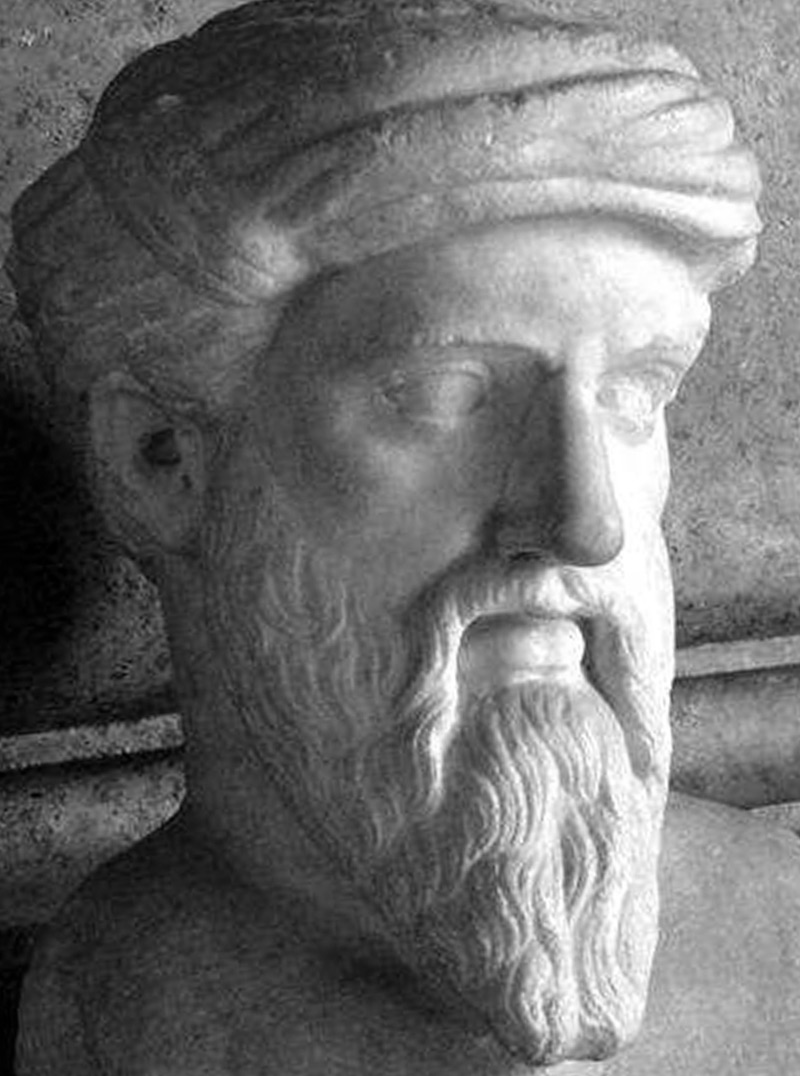
Pythagoras (c. 570 - c. 495 BC)
founder of Pythagoreanism
|
|
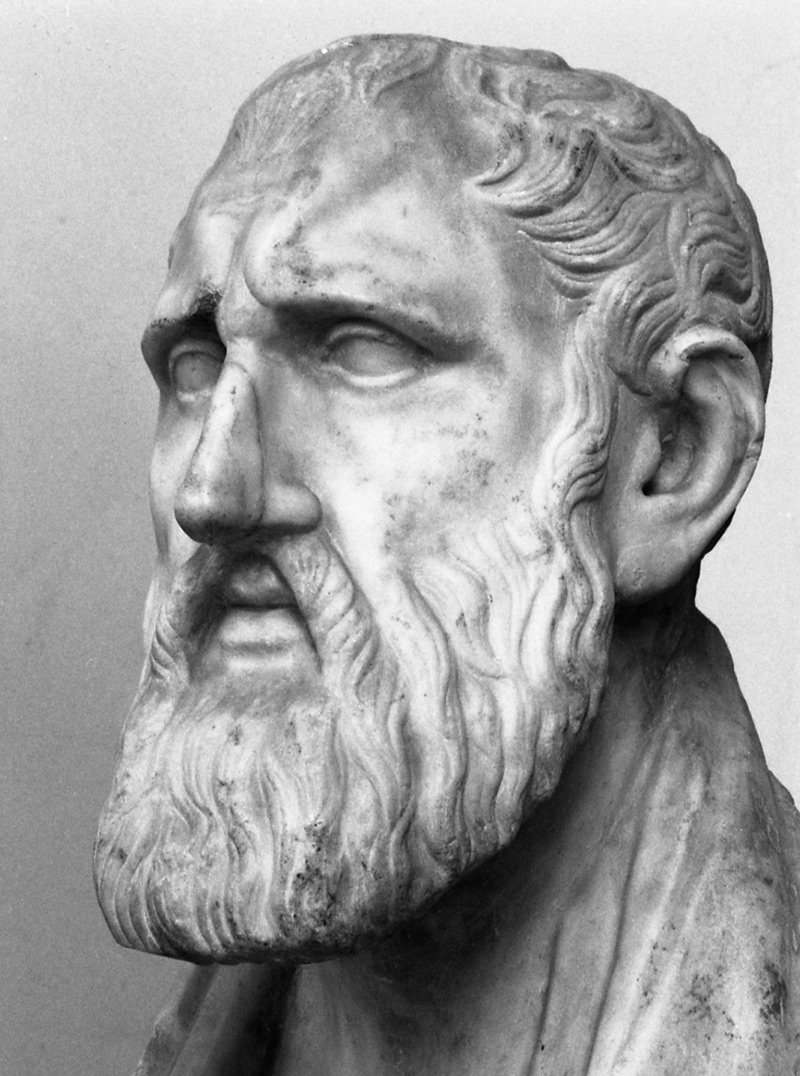
Zeno of Citium (c. 334 - c. 262 BC)
founder of Stoicism
|
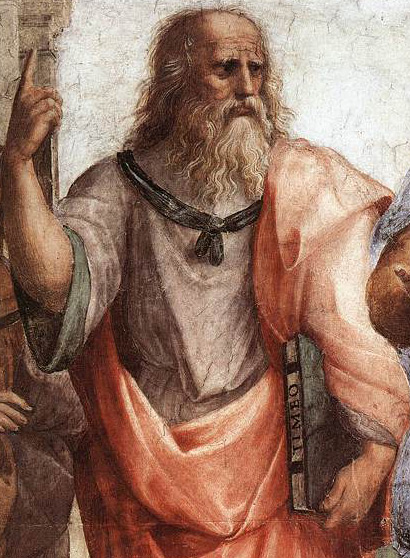
Plato (c. 427 - c. 347 BC) holds a copy of Timaeus, one of his dialogues
|
During a stroll along the seashore, he encountered a Christian who pointed him to the testimony of the Prophets “who imparted truth to men,” concerning Jesus Christ. He must have cited the miracles of Christ, convincing Justin of the Creator God, come to earth as man, and, through the power of the Holy Spirit, glorifying God in all He did. The apologist finally encouraged Justin to “pray above all things, the gates of light may be opened to you, for these things cannot be perceived or understood by all, but only by the man to whom God and His Christ have imparted wisdom.” Church tradition says he was converted to the Christian faith at Ephesus.
Justin threw all his former philosophers overboard and embraced the Gospel of Christ. He devoted his life to peripatetic ministry, witnessing of God’s Grace to all who would listen. The willingness of believers to become martyrs and the devoted lives of other believers that he met, confirmed his resolve to serve Christ in all things. As a teacher, he drew young men to himself, and they witnessed his debates with pagan philosophers, whom he apparently bested on regular occasions.
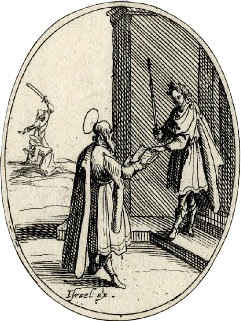
Engraving thought to represent Justin Martyr presenting his First Apology to Roman Emperor Antonius, plus Justin’s eventual beheading in the background
|
Like most early Christian preachers who have left behind books or sermons that they published, Justin retained various errors in his thinking regarding biblical doctrine. Some of the pagan philosophy he studied so assiduously when young, crept into some of his ideas. Nonetheless, we find him referring to biblical passages from the many Old Testament books, the synoptic Gospels, most of the Pauline Epistles and Revelation, in his writings. The context of most of Justin’s works are apologetic in nature, defending the faith against the pagans. Three of his works have survived till today. For instance, in a dialogue with a Jew named Trypho from Ephesus, Justin very skillfully explained the reasons he should consider the Christian faith for himself.
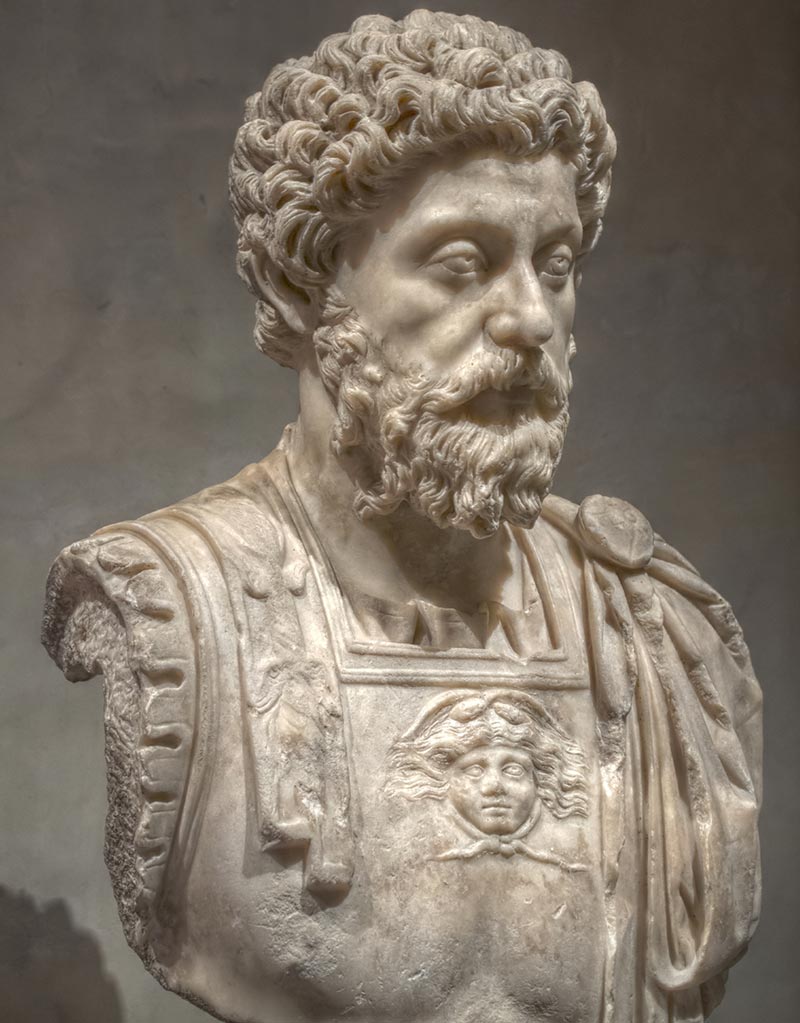
Marcus Aurelius (121-180 AD), Roman Emperor from 161 to 180 and a Stoic philosopher
|
Justin founded a Christian school in Rome, where he carried on his teaching and testimony against all comers. He debated a cynic named Crescentius “who held that virtue alone was the goal of life.” Enraged at being bested by this Christian teacher, the Roman apparently reported Justin to the authorities charging atheism—not believing in the gods of the Romans. Under the authority of Emperor Marcus Aurelius, a number of Justin’s students and himself were seized, tried, flogged and beheaded on June 1, 166. From henceforth this early Christian father became known as Justin Martyr and his teaching spread far and wide in the Church. For centuries, his death has been marked on the liturgical calendar as the “Feast Day of Justin Martyr” in the Roman Catholic, Eastern Orthodox, and Anglican Churches.
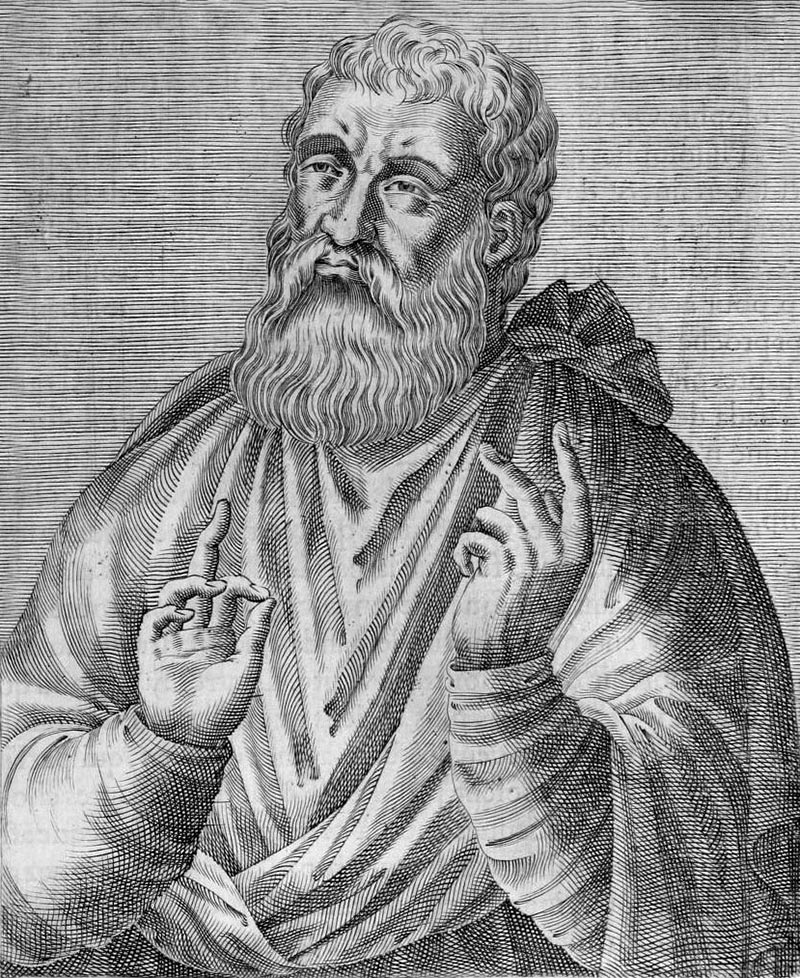
Justin Martyr was beheaded on
June 1, 166 AD
|
Jesus told his disciples to expect martyrdom, “if the world hates you, know that the world hated me before it hated you” and the violent deaths of Christians has been a common occurrence ever since the resurrection of Christ. When the Roman Caesars proclaimed themselves gods and demanded worship, the death of saints became a predictable reality for those who would not compromise. When the state becomes the source of law and worship, martyrdom has often followed for those who proclaim that Jesus is Lord and King. American Christians may someday join the brethren of history in martyrdom as the civilization and culture that was based on the Word of the Living God is totally replaced with the barbarism of the secular pagans and the worship of the state.

Image Credits:
1 Justin Martyr (Wikipedia.org)
2 Map showing Nablus (Wikipedia.org)
3 Zeno of Citium (Wikipedia.org)
4 Pythagoras (Wikipedia.org)
5 Plato (Wikipedia.org)
6 Marcus Aurelius (Wikipedia.org)
7 Justin presenting book (Wikipedia.org)
8 Justin Martyr engraving (Wikipedia.org)
|







